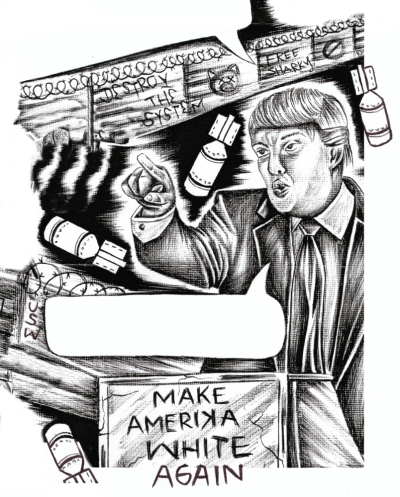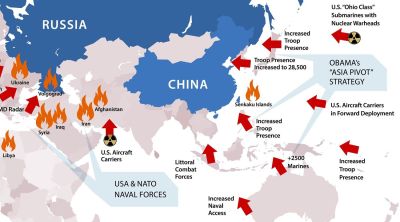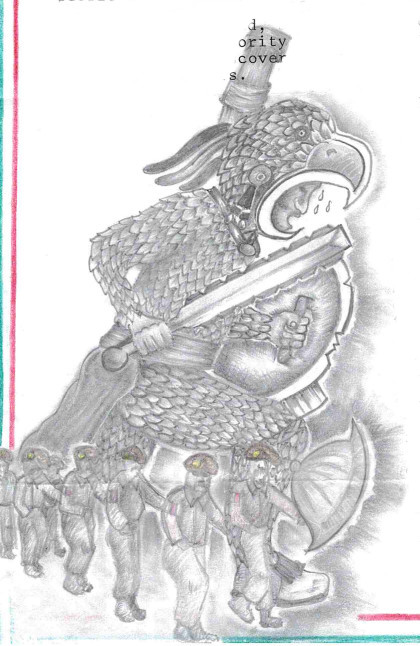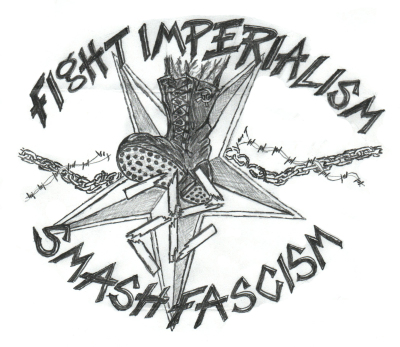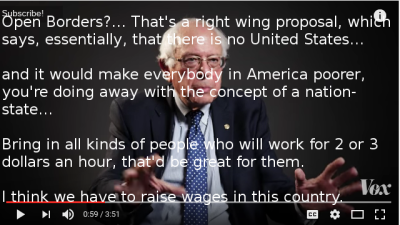Guantanamo Diary
de Mohamedou Ould Slahi
2015
Desde el año 2001, Mohamedou Ould Slahi ha estado detenid@ en centros
secretos de detención por orden del gobierno amerikano. Primero en
Mauritania (el país donde nació), después en Jordania, y finalmente en
2002 fue encarcelado en la Bahía de Guantánamo, donde todavía está. En
septiembre 29, 2001, Slahi se entregó voluntariamente a la policía
Mauritania; estaba segur@ de que iba a ser exonerad@ ya que era inocente
de cualquier crimen. Pero en lugar de ser liberad@, sufrió años de
tortura. Al inicio mantuvo su inocencia hasta que se dio cuenta de que
no iba a ser liberad@ y hasta que no pudo soportar más el sufrimiento.
Desde ese momento, Slahi empezó a confesar cualquier cosa que sus
captores querían que dijera. Ocasionalmente, Slahi les decía la verdad
cuando le preguntaban directamente y también cuando sabía que sus
cuentos no eran consistentes ni podían ser ratificados porque sus
‘confesiones’ fueron totalmente fabricadas. Pero fue después de empezar
a dar confesiones falsas e implicar falsamente a otros que a Slahi se le
permitió dormir y comer e incluso paró el extremo maltrato físico. Los
detalles de su tortura harán que los lectores se pregunten: ¿Cómo pudo
durar tanto tiempo?
En 2005, Slahi empezó a escribir sobre sus experiencias (después de que
le dieron papel y bolígrafo) y finalmente, después de muchos años de
batallas jurídicas, su manuscrito, que fue fuertemente censurado, fue
liberado por el gobierno americano. Este libro es una versión editada de
la historia de Slahi y contiene las redacciones originales. El editor,
Larry Seims, incluye algunas especulaciones de las razones de dichas
redacciones y documenta información desclasificada que confirma lo que
Slahi escribió. A pesar de la censura excesiva, el manuscrito incluye
detalles sorprendentes sobre las experiencias de Slahi, por ejemplo: los
años de tortura que sufrió, evidencia incuestionable de su inocencia, y
el deseo del gobierno americano de una confesión falsa. El libro está
escrito en inglés, el cuarto idioma de Slahi, uno que aprendió en la
cárcel para poder comunicarse mejor con sus captores y para poder
entender lo que sucedía a su alrededor. Durante seis años y medio, Slahi
no pudo tener contacto con el mundo exterior. Incluso, fue ocultado del
‘International Committee of the Red Cross’ (el Comité Internacional de
la Cruz Roja – CICR) que tiene un mandato bajo los Convenios de Ginebra
de visitar a los prisioneros de guerra y a las personas que fueron
detenidas en situaciones similares a Slahi, para asegurarse de que son
tratados humanamente. Durante el primer año de su encarcelamiento, la
familia de Slahi ni siquiera sabía dónde estaba y solo lo descubrieron
cuando uno de sus hermanos vio un artículo en un periódico alemán. En
2008, Slahi finalmente se le concedidó el ‘privilegio’ de poder llamar a
su familia dos veces al año. En 2010, la petición de habeas corpus, que
ordenaba su liberación, fue concedida por el ‘DC Circuit Court of
Appeals’ (Corte de Apelaciones de Estados Unidos para el Circuito del
Distrito de Columbia). Pero la administración de Obama presentó una
apelación y Slahi permanece aun en custodía.
La dominación global del imperialismo Amerikano
Las tantas personas que fueron detenidas y secuestradas de sus países
nativos, y que fueron mandadas a la Bahía de Guantánamo, enfatizan el
estado neo-colonial de esos países. Como Slahi explica, “El 28 de
noviembre es el día de la independencia de Mauritania; simboliza el
evento cuando la república islámica de Mauritania supuestamente declaró
independencia de los colonizadores franceses en 1960. Irónicamente, en
ese mismo día en 2001, la independiente y soberana república de
Mauritania entregó uno de sus propios ciudadanos en una premisa. Además
de su deshonra eterna, el gobierno de Mauritania no solo rompió la
constitución, que prohíbe la extradición de los criminales Mauritanos a
otros países, sino que también extraditó a un ciudadano inocente,
exponiéndole a la impredecible justicia amerikana.” (p132)
Cuando el CICR por fin consiguió ver a Slahi, el último detenido que
tuvieron permiso para ver, intentaron hacerl@ hablar del abuso que
sufrió. “Siempre escondí los maltratos cuando me lo preguntaba el CICR
porque tenía miedo de la represalia. Eso y el hecho de que el CICR no
tiene ningún poder real sobre el gobierno amerikano; el CICR intentó,
pero el gobierno amerikano no cambió de ruta, ni siquiera una pulgada.
Si dejaban al CICR ver a un detenido, significaba que la operación
contra ese detenido se había terminado.” (p348)
Este libro enfatiza el poder del imperialismo amerikano y el hecho de
que puede hacer lo que quiere en este mundo. No hay ningún gobierno ni
organización que pueda luchar contra este poder. Muchos amerikanos se
enorgullecen de esto, pero esto es el poder de una gente que quiere
dominar el mundo para ganancias económicas. Cuando los oprimidos
contraatacan, el poder es desplegado para aplastar a la resistencia por
cualquier medio necesario. Por supuesto hay una contradicción inherente
en este poder: la dominación del imperialismo amerikano engendra
resistencia de los oprimidos en todo el mundo. Los llamados ataques
terroristas dirigidos a los E$tado Unido$ (EE.UU) son reacciones al
terrorismo amerikano en todo el mundo. Como Slahi escribió cuando estaba
viendo la película ‘Black Hawk Down’ (La caída del halcón negro): “Los
guardias se volvieron locos emocionalmente porque vieron a muchos
amerikanos asesinados a balazos. Pero no se dieron cuenta de que el
número de víctimas amerikanas es insignificante comparado con los
somalís que fueron atacados en sus propias casas. Me quede pensando cómo
la gente puede tener la mente tan cerrada. Cuando la gente ve algo desde
solo una perspectiva, fracasan en ver el escenario total, y esa es la
razón principal de la mayoría de los malentendidos que a veces resultan
en confrontaciones sangrientas.” (p320)
No estamos de acuerdo de que solamente son estos malentendidos que
resultan en estas confrontaciones sangrientas. Pero, más bien es el
hambre de sangre de la agresión imperialista que continuamente busca
nuevas fuentes de riqueza explotada y riqueza robada que inevitablemente
resulta en las confrontaciones sangrientas.
Aunque Slahi está lejos de ser radical políticamente, sus experiencias
le educaron sobre la realidad de la injusticia y la definición del
crimen por los que están en poder. Escribiendo sobre su arresto y
encarcelamiento inicial en Mauritania: “¿Por qué tenía tanto miedo?
Porque la delincuencia es algo relativo; es algo que el gobierno define
y redefine cuando le da la gana.” (p92)
La guerra contra el Islam
El objetivo de la agresión de los EE.UU cambia dependiendo de donde este
la mayor resistencia al imperialismo. A mitad del siglo XX la agresión
fue concentrada en los países comunistas, esto luego cambió a finales
del siglo XX a la guerra contra las drogas en Latinoamérica, y después
al mundo árabe al principio del siglo XXI. Slahi está fuertemente
consciente de esta reciente ola de agresión por l@s imperialistas
amerikan@s dirigida al Islam y la hipocresía de este ataque:
“…L@s amerikan@s suelen ampliar el círculo de los que están involucrados
para poder atrapar el mayor número de musulmanes posible. Siempre hablan
de una gran conspiración en contra de los EE.UU. Yo personalmente fui
interrogad@ sobre la gente que solamente practican lo básico de la
religión y que simpatizan con los movimientos islámicos; me preguntaron
sobre cada detalle de los movimientos islámicos, sin importar que tan
moderadodos fueran. Es sorprendente que en un país como los EE.UU, donde
organizaciones terroristas cristianas como los nazis y los defensores de
la supremacía de la raza blanca tienen la libertad de expresarse y
reclutar gente públicamente sin repercusiones. Sin embargo, si eres
musulmán y si simpatizas con las opiniones políticas de una organización
islámica, tendrás grandes problemas. Incluso asistir a la misma mezquita
que un sospechoso resultaría en apuros serios. Esto es evidente para
todos l@s que entienden los componentes de la política amerikana hacia
el supuesto terrorismo islámico.” (p260-61)
Slahi también documenta la denegación de las prácticas religiosas en los
campos de detención:
“Pero en los campos secretos, la guerra contra la religión islámica era
más obvia. No solo no había señales hacia Meca, sino las oraciones
rituales también fueron prohibidas. Recitar el Corán fue prohibido.
Ayunar fue prohibido. Poseer el Corán fue prohibido. Prácticamente
cualquier cosa relacionado con islam fue estrictamente prohibido. No
estoy hablando de rumores; estoy hablando de mis experiencias
personales. No creo que el estadounidense común esté pagando impuestos
para librar una guerra contra el islam, pero sí creo que haya gente en
el gobierno que tiene un problema grande con la religión
islámica.”(p265)
Slahi no se da cuenta de que este chovinismo no es un problema que l@s
amerikan@s tienen con la religión islámica, sino que es un problema con
las personas oprimidas que se alzaran contra el imperialismo amerikano.
El Islam es solo uno de los tantos blancos porque es una religión de l@s
oprimid@s. El gobierno amerikano (y su gente) no tenía ningún problema
con islam cuando Al Quaeda fue un aliado en la lucha contra el
comunismo. De hecho, el mismo Slahi entrenó con Al Quaeda durante seis
meses en Afganistán, pero esto fue durante el tiempo cuando el grupo fue
apoyado por el gobierno amerikano y cuando luchaban contra el gobierno
sostenido por los soviéticos en dicho país. Esta acción era legal para
los ciudadanos en Mauritania e incluso fue animada por el gobierno
amerikano. No obstante, este hecho se convirtió en uno de los factores
más importantes que influyó la insistencia del gobierno amerikano de que
Slahi estaba detras de los ataques del Centro de Comercio Mundial, entre
otras cosas.
¿Se opondrán l@ss amerikan@s a la tortura?
Después de años de tortura e injusto encarcelamiento a manos del
gobierno amerikano, las opiniones de Slahi sobre el país y sus
habitantes permanecen relativamente moderadas. Ve el bien en todos, una
opinión que compartida por los comunistas. Pero es una opinión que no le
deja ver los intereses económicos de la mayoría de los amerikanos que
hace que apoyen la tortura en Guantánamo, incluso después de que
reportajes como este sean publicadas. “¿Qué pensaría un amerikano muerto
común si podría ver lo que su gobierno está haciendo a alguien que no ha
cometido ningún crimen contra nadie? Por más que me apenaba por los
compañeros árabes, sabía que no representaban el árabe común. La gente
árabe está entre los mejores en el planeta; son sensibles, emocionales,
amorosos, generosos, se sacrifican, son religiosos, caritativos y
amables… El odio contra los EE.UU seria regado si la gente en el mundo
árabe supiera lo que sucede aquí. Incluso la acusación de que los EE.UU
está ayudando y trabajando con los dictadores en nuestros países seria
dimentada.” (p257) La realidad es que la mayoría de la gente en el mundo
árabe esta consciente de la injusticia amerikana. De hecho, cuando Slahi
preguntó porqué le estaban extraditando cuando pensaban que ya había
probado su inocencia, la policía en Mauritania le dijo “los Estado
Unidos es un país que está basado en la injusticia.” (p134) Es este
conocimiento que resulta en que la gente empiece a luchar contra el
imperialismo amerikano. Al mismo tiempo, la mayoría de l@s amerikan@s
ahora saben sobre la tortura de los detenidos en la Bahía de Guantánamo
y la opinión del público está lejos de furia a conocer estas acciones.
Mucha gente de la población se reúne para dar apoyo a figuras políticas
como Donald Trump cuando exige más tortura. A través de todo esto, vemos
más evidencia que apoya la posibilidad de que Islam pueda ser una
Teología de liberación para los que luchan contra el imperialismo
amerikano. Así como las masas en Latinoamérica fueron atraidas a la
Teología de liberación católica como una reacción contra la opresión e
injusticia en esa región, es probable que segmentos de cualquier
religión adapten sentimientos similares. La Teología de liberación fue
una aliada valiosa para los revolucionarios en Latinoamérica.
Sea como sea que se desarrolle esta lucha de liberacióon, sabemos que la
gente oprimida de este mundo no puede esperar a que los americanos abran
los ojos y paren la tortura ellos mismos. Ahora, después de un año de
que el libro de Slahi fuera publicado (e incluso fue entre los libros
más vendidos), todavía no cambia su situación. Las masas deben liberarse
a sí mismos; sus captores nunca rendirán su poder voluntariamente. Los
amerikanos están disfrutando de los botines de los captores, entonces la
mayoría de l@s amerikan@s están contentos con la tortura mundial
imperialista.









